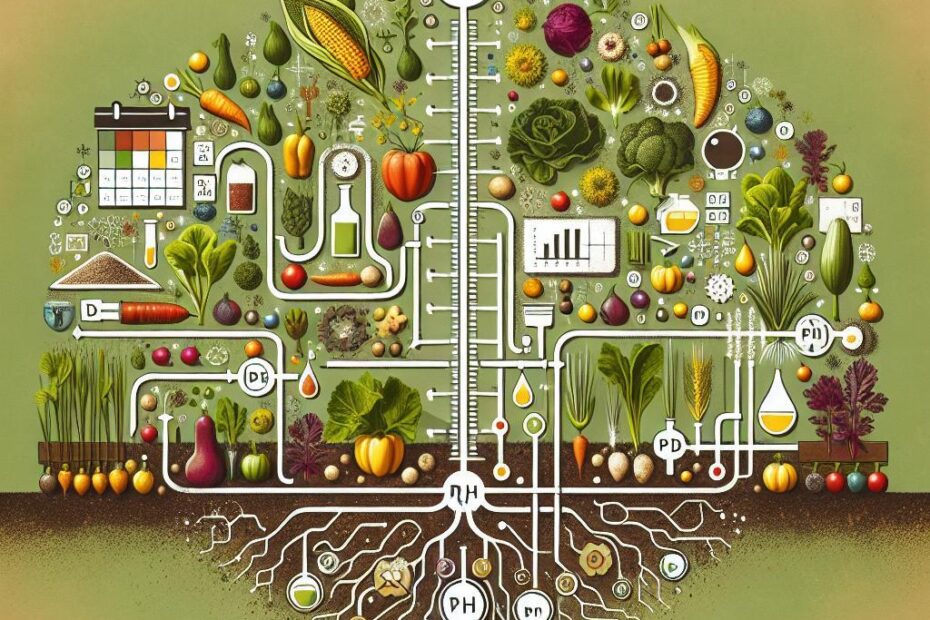Title: Understanding and Managing Vegetable Garden Soil Acidity
Introduction:
One of the most crucial factors that determine the success of your vegetable garden is the soil acidity level. Soil acidity, also known as pH, plays a key role in the availability of nutrients to plants. Understanding and managing soil acidity in your vegetable garden is essential for healthy plant growth and optimal yields. In this article, we will delve into the importance of soil acidity, how to test and adjust pH levels, and practical tips for maintaining a balanced soil environment for your vegetables.
The Importance of Soil Acidity in Vegetable Gardening:
Soil acidity, measured on a scale from 0 to 14, with 7 being neutral, affects the availability of essential nutrients to plants. Most vegetables prefer slightly acidic soil with a pH level ranging from 6 to 7.5. When the soil pH is too high or too low, it can lead to nutrient deficiencies or toxicities, stunting plant growth and reducing yields.
Testing Soil Acidity:
To determine the pH level of your vegetable garden soil, you can use a simple soil pH testing kit available at gardening stores. Follow the instructions provided with the kit to collect soil samples from various areas of your garden and test the pH level. Alternatively, you can send soil samples to a professional laboratory for more accurate results.
Adjusting Soil Acidity:
If the pH level of your vegetable garden soil is too low (acidic), you can raise it by adding lime (calcium carbonate) to the soil. On the other hand, if the pH level is too high (alkaline), you can lower it by adding elemental sulfur or agricultural sulfur. It is essential to follow recommended application rates to avoid overcorrection and potential damage to plants.
Benefits of Managing Soil Acidity:
Maintaining the correct soil acidity level in your vegetable garden has numerous benefits, including:
- Improved nutrient availability: Balanced soil pH ensures that essential nutrients are readily available to plants for healthy growth.
- Enhanced root development: Optimal soil acidity promotes robust root systems, leading to stronger and more resilient plants.
- Disease prevention: Some plant diseases are more prevalent in acidic or alkaline soil, so maintaining the right pH level can help prevent infections.
- Increased yields: Healthy plants grown in well-balanced soil are more likely to produce higher yields of quality vegetables.
Practical Tips for Managing Soil Acidity:
- Test soil pH regularly to monitor changes and adjust accordingly.
- Use organic matter such as compost to help buffer soil pH and improve overall soil health.
- Rotate crops to prevent the buildup of soil-borne diseases and nutrient depletion.
- Mulch around plants to maintain consistent soil moisture and temperature, which can impact pH levels.
Case Study:
Mary, an avid gardener, noticed that her tomato plants were growing slowly and producing fewer fruits than usual. After testing the soil pH, she discovered that the acidity level was too high. By adding lime to the soil and adjusting pH levels, Mary saw a significant improvement in plant growth and yield the following season.
Conclusion:
In conclusion, soil acidity plays a critical role in the success of your vegetable garden. By understanding the importance of soil pH, testing and adjusting levels as needed, and following practical tips for managing soil acidity, you can create an optimal growing environment for your plants. Remember to monitor soil pH regularly and make adjustments as necessary to promote healthy plant growth and maximize yields in your vegetable garden.
